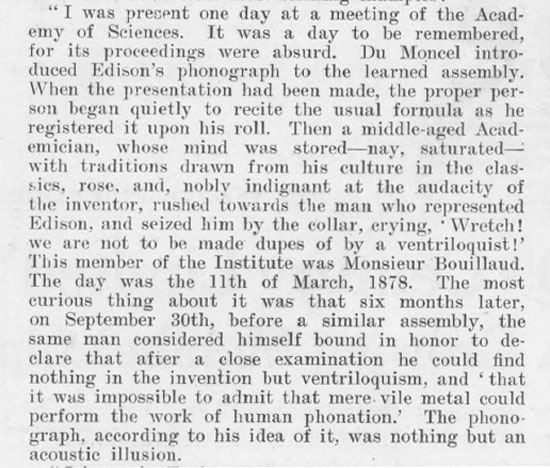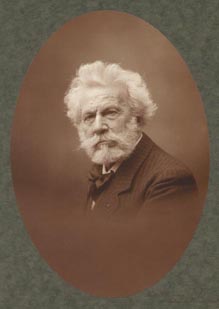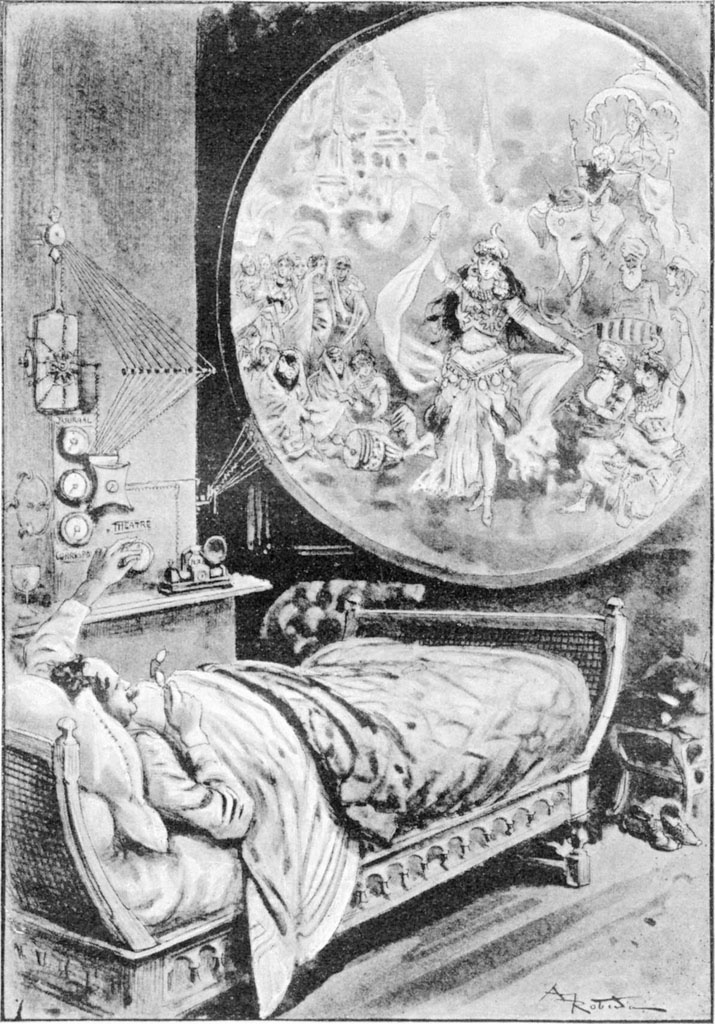M. Camille Flammarion, 1878* "A day to be remembered, for its proceedings were absurd." Flammarion's story of Edison's Phonograph being presented in Paris in March 1878...and the incredible reaction that followed. The following Friends of the Phonograph "Memory of the Phonograph" is from Flammarion's book The Unknown (L'Inconnu), 1900 and from a 1909 article in Harper's Weekly titled "The Dawn of the Golden Age - How Incredulously and Reluctantly the World Accepted Its Great Inventions." In his book written in 1900 Flammarion gave examples of incredulity and even hostility by some scientists only a few years earlier towards different inventions. One of those inventions was the Phonograph. Flammarion had attended the demonstation of Edison's Phonograph at the Academy of Sciences in Paris on March 11, 1878. An Institute member named Monsieur Bouillaur was also an attendee and after the presentation of Edison's phonograph the indignant "Academician" Bouillaur rose from his chair, "rushed towards the man who represented Edison, and seized him by the collar, crying, "Wretch! we are not to be made dupes of by a ventriloquist!" Six months later at a similiar assembly that same Bouillaur "after a close examination" of the phonograph again announced it had to be ventriloquism and "that it was impossible to admit that mere vile metal could perform the work of human phonation." "The phonograph, according to his idea of it, was nothing but an accoustic illusion." Here is the excerpt from the 1909 Harper's Weekly article "The Dawn of the Golden Age" whose author welcomes the new dawn and the enlightenment of the public mind ("not the least of the marvels of to-day") which "now welcomes projects that would have been denounced as frauds or insane delusions only a few years ago."

Harper's Weekly, November 14, 1908 p. 32.
Flammarion was also the author of the science fiction novel La Fin du Monde, 1894, which included an illustration of the "Telefonoscope," a device which could provide its user with anything important or interesting going on in the world, apparently in real time. This device, therefore, seems to have been envisioned more as an early version of broadcasting akin to live television and not simply recording events and then making them available. But perhaps it did both and has connections to the phonograph as a creator of "recordings."
"Telefonoscope" from La Fin du Monde, 1894 (Courtesy Jean-Paul Laurens Rochegrosse and Wikipedia)
Note: The Omega - The Last Days of the World, Arno Press, New York, 1975 based on translation of La Fin Du Monde and reprint of the edition published by The Cosmopolitan Publishing Co., by J. B. Walker, 1894, does not contain this illustration. (Courtesy Internet Archive). A "photophonic" message, however was described in La Fin Du Monde and a telephonoscope was used to view and hear the message from Mars with its warning that the comet would strike Earth and Italy needed to be evacuated. (See Ibid. The Omega, pp. 117-119 for description of the "phonogram" and the message heard and seen via the telephonoscope).
|


